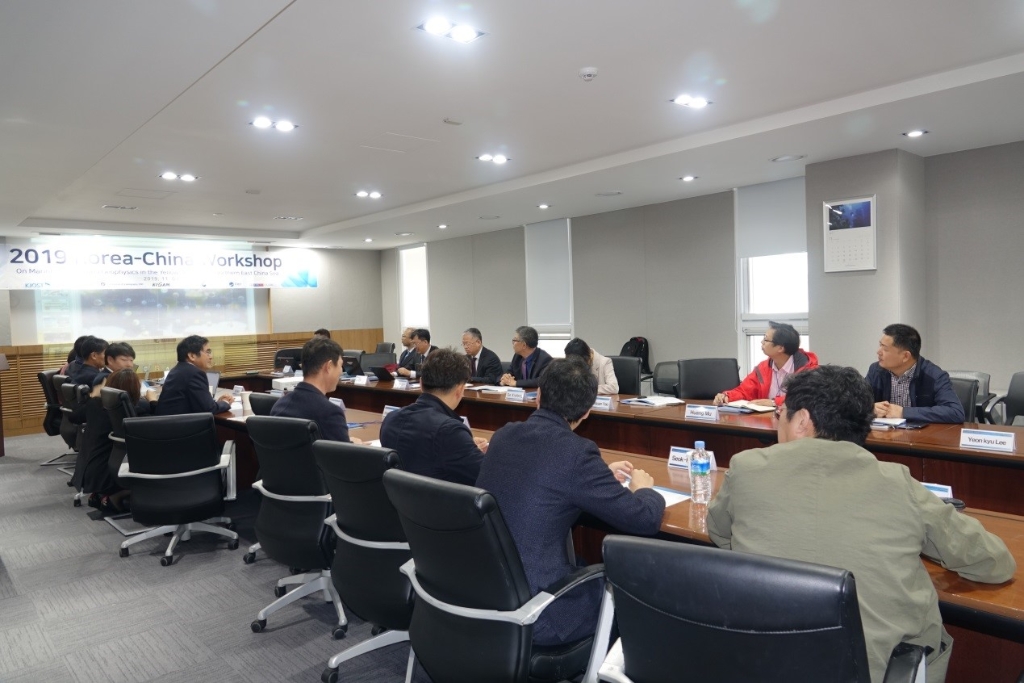2019 Korea-China Workshop on Marine Geology and Geophysics successfully held in Busan, South Korea
|
On November 6-7, 2019, the 2019 Korea-China Workshop on Marine Geology and Geophysics jointly organized by the First Institute of Oceanography of the Ministry of Natural Resources (FIO, MNR) and the Korea Institute of Ocean Science and Technology (KIOST) was successfully held in Busan, South Korea. This year, the workshop was themed on "Geological and Geophysical Characteristics and Evolution of the Yellow Sea and the Northern East China Sea". KIOST President Kim Woong-seo and FIO Director Li Tiegang addressed the opening ceremony respectively.
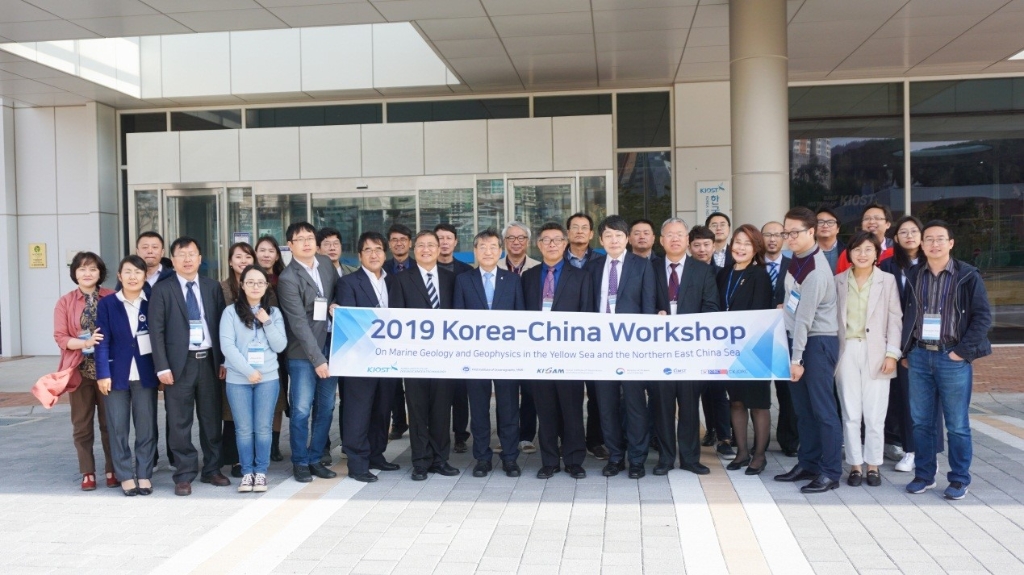 Group photo of attendees
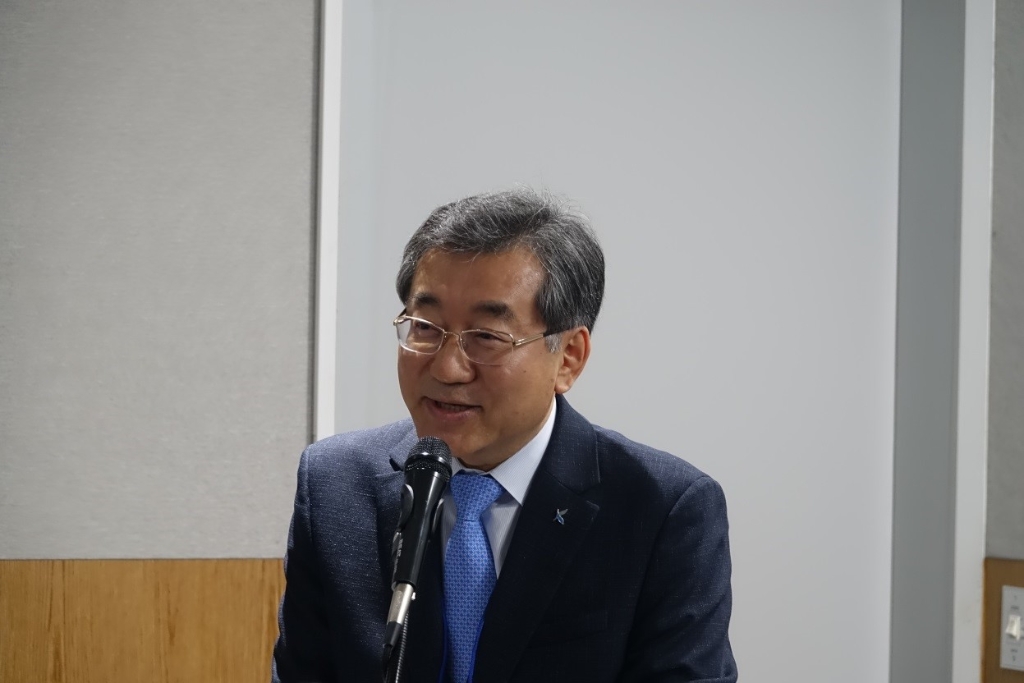 President Kim Woong-seo delivers the welcome address 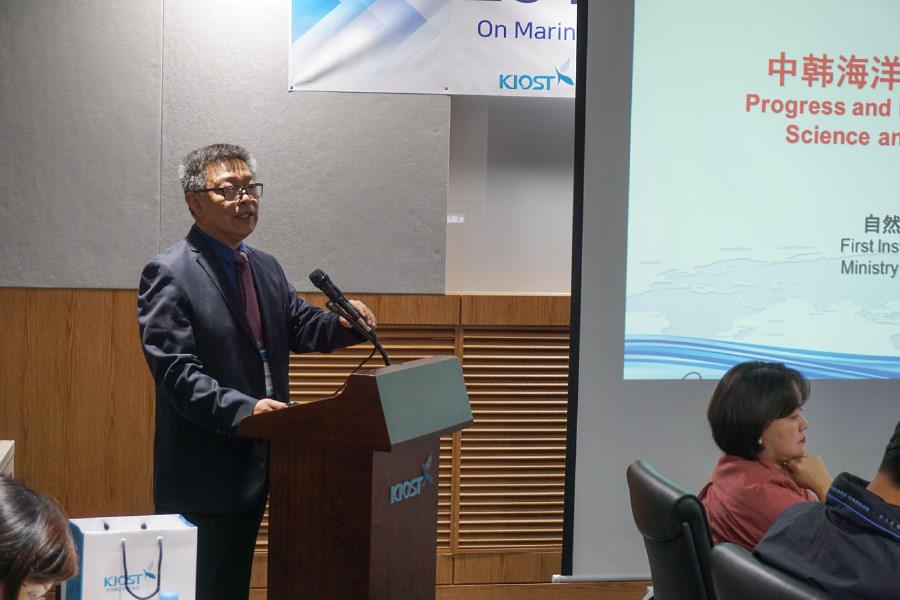 Director Li Tiegang delivers a speech President Kim Woong-seo said in his speech that, on behalf of China and South Korea, FIO and KIOST have not only conducted cooperation in adjacent sea areas but also constantly carried out fruitful research in the world, making numerous achievements in marine resources, marine disasters, ancient oceans, climate change and marine environment, and contributing greatly to the development of marine science and technology. President Kim Woong-seo hoped that scientists and policy research experts from FIO and KIOST will step up cooperation to promote innovations in marine science and technology by exchanging information and ideas, so as to jointly cope with the challenges in the rapidly changing global marine environment. This academic exchange will urge Chinese and South Korean scientists to conduct deeper and wider cooperation in marine geology, geophysics and marine investigation, and deliver more results. In his speech, Director Li Tiegang thanked President Kim Woong-seo and colleagues at KIOST for their efforts in convening this workshop. In addition, he strongly agreed to President Kim Woong-seo's view that China and South Korea will work together to solve scientific problems in marine geology, geophysics and other marine-related fields. At the invitation of President Kim Woong-seo, Director Li Tiegang made a special report entitled Prospects for China-Korea Cooperation in Marine Science and Technology. In the report, Director Li Tiegang briefed on the latest situation of FIO, reviewed the history and progress of marine cooperation between China and South Korea, and elaborated the goals, content and roadmap of future cooperation between China and South Korea and between FIO and KIOST. 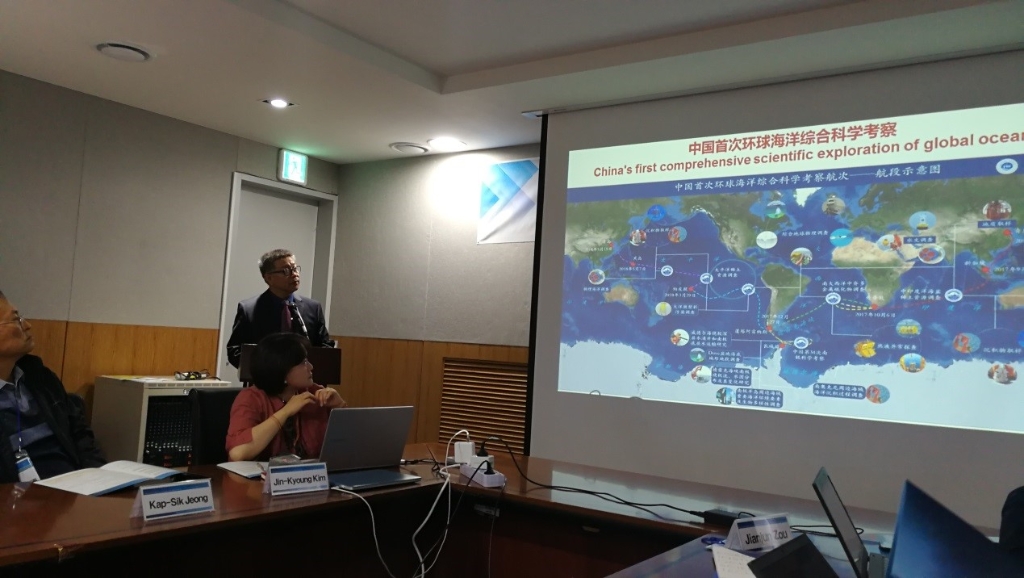 Director Li Tiegang makes a special report entitled Prospects for China-Korea Cooperation in Marine Science and Technology Director Li Tiegang said in his report that FIO serves the marine power strategy and MNR's core responsibilities as well as the strategies of deep participation in the global ocean governance and building a maritime community with a shared future, and spares no effort to build itself into an world-leading comprehensive research institution based on it's positioning such as forming systematic solutions to major scientific problems, proposing original theories and methods on major marine-related scientific issues of global interest, and leading the development of China's marine science and technology. China and South Korea have conducted cooperation in marine science and technology for a long time. In September 1992, China and South Korea signed the Inter-governmental Protocol on Science and Technology Cooperation between the People's Republic of China and the Republic of Korea. In October 1994, the State Oceanic Administration of China and the Ministry of Science and Technology of South Korea signed the PRC–ROK Memorandum of Understanding on Marine Science and Technology Cooperation. Since the establishment of the China-Korea Joint Ocean Research Center (CKJORC) on May 12, 1995, China and South Korea have made remarkable achievements in bilateral cooperation in marine science and technology via various forms, including high-level exchange visits, cooperation topics, joint workshops, technical training, exchange visits of Chinese and South Korean marine scholars, joint survey cruises, and joining in international marine organizations and institutions. China has ushered in a period of comprehensive accelerated development of marine science and technology. It has become the top priority for marine science and technology cooperation between China and South Korea to adapt to the new trend, seize new opportunities, rise to new challenges and plan for new cooperation. As suggested by Director Li Tiegang, China and South Korea will step up cooperation in marine environment and disaster prevention and mitigation, healthy oceans and ecological security, blue economy and sustainable development, polar regions and climate change, marine biological resources development and energy utilization, marine information and big data, striving to build a maritime community with a shared future. 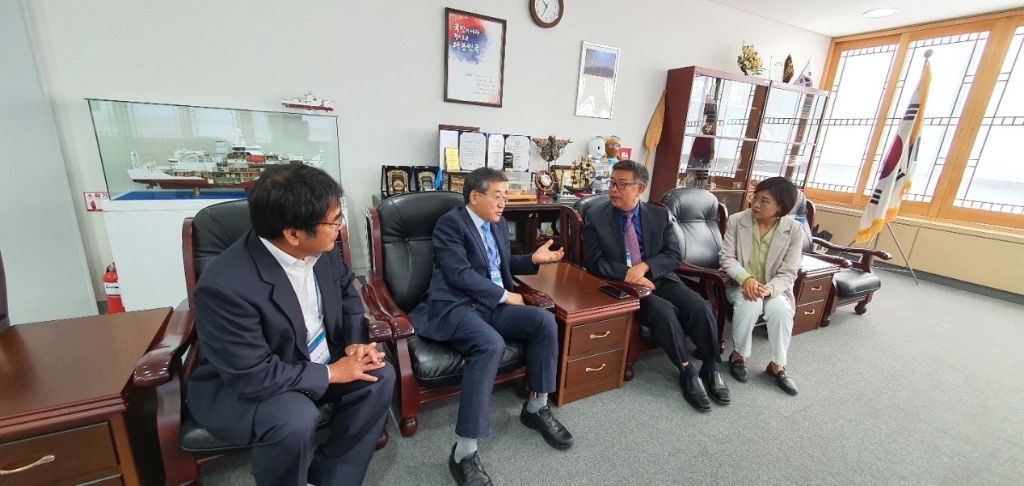 Direct Li Tiegang and President Kim Woong-seo are having a talk In the talk between the two leaders during the workshop, President Kim Woong-seo fully agreed to Director Li Tiegang's outlook on the future cooperation in marine science and technology between China and South Korea, and introduced the current research of the South Korean side in deep sea resources, climate change, aquatic resources, marine spatial planning, marine environment, polar regions and oceanic minerals. President Kim Woong-seo hoped that FIO and KIOST will focus on the above international hotspot issues, step up extensive and in-depth exchanges and cooperation to achieve synergy, and spearhead the marine development of the two countries.
Starting in 1997, the Korea-China Workshop on Marine Geology and Geophysics has a history of 22 years. Over 30 scholars and experts from China and South Korea attended the workshop and 18 scientists delivered academic reports. During the workshop, the Chinese delegation visited the South Sea Research Institute, a branch of KIOST, and the Marine Geological Sample Repository under KIOST's arrangement. After negotiations between the two sides, the 2020 Korea-China Workshop on Marine Geology and Geophysics will be held in China in October. The two sides said they will strengthen exchanges between young scientists and work together to release relevant research results.
|



